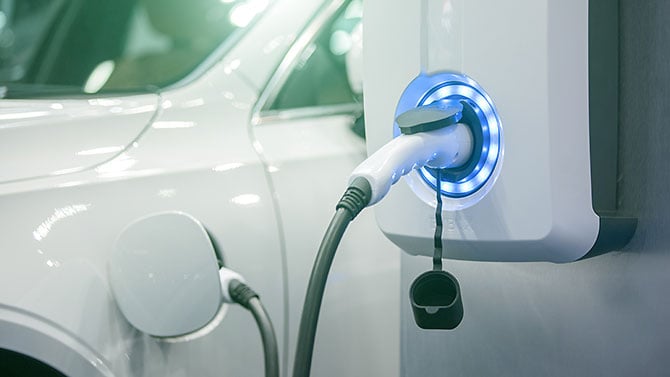{{item.title}}
{{item.text}}

{{item.title}}
{{item.text}}
Making sure mobility becomes more sustainable plays an important role in the energy transition. Governments and companies from various sectors are working together on the biggest transformation in mobility since the advent of the internal combustion engine. By making our mobility more sustainable, new players are emerging with innovative business models and traditional players need to review their activities. Which government policy contributes optimally to this transformation? And how can companies make use of the opportunities created by the development of sustainable mobility? Our expert colleagues are happy to think along with you about this topic.
The commitments in the National Climate Change Agreement for mobility focus mainly on electrification or e-mobility. The ambition is that, from 2030 onwards, new passenger cars will only be for sale electrically. In the same time, public transport buses, construction traffic and mobile equipment must also be emission-free. The automotive sector has virtually stopped developing diesel and petrol engines and is focusing all its innovative power on electric transport. The contribution of suppliers such as chemical companies, who are working on lighter materials and improved battery technology, is also important.
In order for all these electric vehicles to run, the climate agreement sets the target of having approximately 1.8 million charging stations available in the Netherlands by 2030. This desired expansion will set all kinds of parties in motion. Real estate companies and businesses are creating charging capacity in offices, municipalities are increasing the charging infrastructure in public spaces and public transport authorities are tendering for electric bus transport. Oil and gas companies are constructing charging stations at petrol stations, as are emerging competitors who are building charging stations along motorways.
Grid managers of the electricity grid are faced with the task of absorbing the increase in electricity consumption with reinforcement of the grid and innovations in the field of smart charging. In addition, smart charging creates the possibility to make optimum use of renewable energy. Smart charging is one of the solutions which shows the importance of the technology sector in developing the necessary digital innovations.
The climate agreement states that the sustainability development of the logistics sector will be achieved through chain optimisation. A thirty percent reduction in CO2 emissions by 2030 must be achieved by supply via logistics hubs outside the city. Logistics companies will develop plans for this in collaboration with local authorities.
For the time being, aviation is committed to reducing emissions by 35 percent by 2030. Furthermore, road transport and shipping are evolving towards emission-free mobility, particularly through hydrogen-powered engines. International shipping aims to reduce CO2 emissions by forty percent by 2030 compared to 2008. The transport and logistics sector, energy companies, governments and investors will also have to jointly create an infrastructure for the application of hydrogen.
In addition to e-mobility and hydrogen, there are other solutions for sustainable mobility. What about autonomous transport, road or rail, which can increase frequency and efficiency? Or the use of drones to replace other transport movements? Research institutes and companies are working on these and other developments that will change mobility and make it more sustainable.
We would like to think along with you about these and other issues. Our experts in Assurance, Advisory, Tax & HRS support businesses, governments and investors in all aspects of sustainable mobility. We do so on the basis of our experience in all the sectors mentioned above and in cross-sector partnerships. Would you like to know more? Contact us to find out how we can realise your ambitions regarding sustainable mobility.

Partner, Energy transition and sustainable energy, PwC Netherlands
Tel: +31 (0)65 160 08 61


